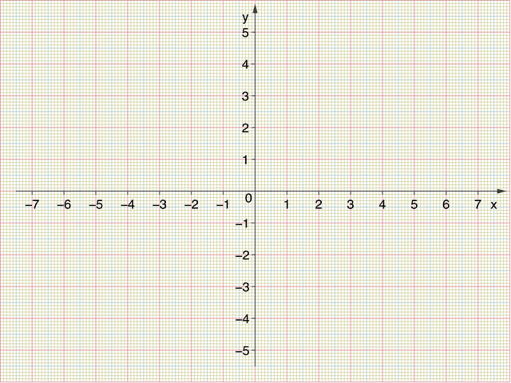how to find a hole in a graph
The Cartesian plane (or the x-y plane) is a two-line graph on which you plot ordered pairs. The two intersecting lines of the Cartesian plane make four distinct graph quadrants. In this article, we'll discuss what graph quadrants are, how to manipulate data points on graph quadrants, and walk through some sample graph quadrant problems. The two lines on the Cartesian plane form four graph quadrants. In this section, we'll discuss the graph quadrant definition and define each part of the plane. A quadrant is one of the four sections on a Cartesian plane. Each quadrant includes a combination of positive and negative values for x and y. There are four graph quadrants that make up the Cartesian plane. Each graph quadrant has a distinct combination of positive and negative values. Here are the graph quadrants and their values: Quadrant I: The first quadrant is in the upper right-hand corner of the plane. Both x and y have positive values in this quadrant. Quadrant II: The second quadrant is in the upper left-hand corner of the plane. X has negative values in this quadrant and y has positive values. Quadrant III: The third quadrant is in the bottom left corner. Both x and y have negative values in this quadrant. Quadrant IV: The fourth quadrant is in the bottom right corner. X has positive values in this quadrant and y has negative values. In this diagram, you can see the four graph quadrants, along with whether or not x and y are positive and negative. Numbers are plotted on graph quadrants in what are known as ordered pairs. An ordered pair consists of two values, x and y. In an ordered pair, x is always the first value and y is always the second value. In the ordered pair (5, -2) for instance, 5 is the x value and -2 is the y value. When plotting an ordered pair, the x value refers to the pair's horizontal position on the graph. The y value refers to the vertical position. See how the pair (5, -2) looks when plotted. Using the following graph quadrant diagram, identify the quadrants for the following ordered pairs. Ordered Pair Quadrant (-9, 11) (4, 8) (-3, -4) Find the answers for the above graph quadrants example problems below. Ordered Pair Quadrant (-9, 11) (4, 8) (-3, -4) A math quadrant is another phrase for a graph quadrant. A graph quadrant is one of four sections on a Cartesian plane. Each of the four sections has a specific combination of negative and positive values for x and y. You plot an ordered pair on graph quadrants. Ordered pairs have x and y values. X is the first value in an ordered pair; y is the second. Want to brush up on other basic math skills? Then check out our expert guides on how to add and subtract fractions and how to use the acceleration formula. Need help preparing for the SAT/ACT Math section?Learn everything you need to know aboutwhat kinds of topics are tested on SAT MathandACT Math.
What Are the 4 Graph Quadrants?
Quadrant Definition
The 4 Graph Quadrants
Graph Quadrants Diagram

Graph Quadrant Numbers, Explained

Graph Quadrants Example Problems

Graph Quadrants Example Problems: Answers
II I III Math Quadrants: Key Takeaways
What's Next?

About the Author
Hayley Milliman is a former teacher turned writer who blogs about education, history, and technology. When she was a teacher, Hayley's students regularly scored in the 99th percentile thanks to her passion for making topics digestible and accessible. In addition to her work for PrepScholar, Hayley is the author of Museum Hack's Guide to History's Fiercest Females.
how to find a hole in a graph
Source: https://blog.prepscholar.com/graph-quadrants-definition-numbers
Posted by: starkbedeencion.blogspot.com

0 Response to "how to find a hole in a graph"
Post a Comment